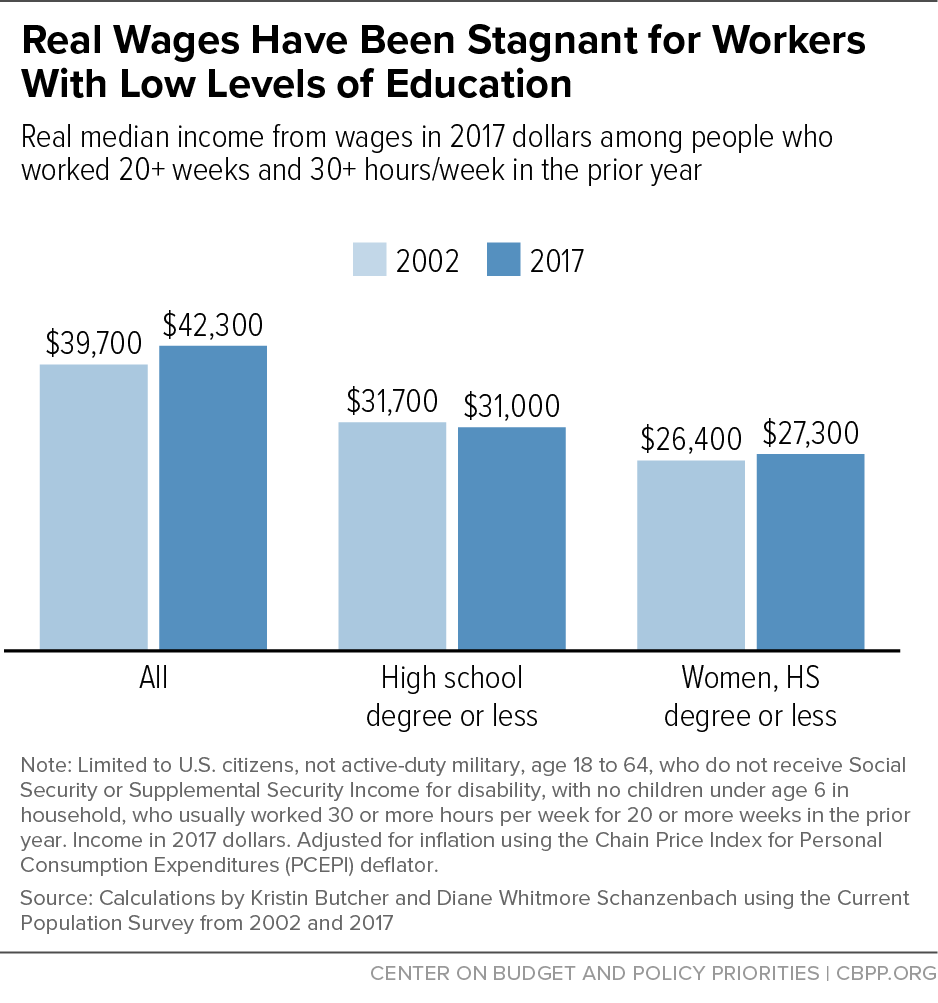BEYOND THE NUMBERS
Research: SNAP, Medicaid Participants Face Barriers to Good Wages, Job Stability
SNAP and Medicaid participants face a labor market that’s characterized by low and stagnant wages and job instability, new research from leading economists Kristin F. Butcher and Diane Whitmore Schanzenbach shows.
That finding contrasts sharply with this month’s report from President Trump’s Council of Economic Advisers that suggested that taking SNAP or Medicaid benefits away from those who don’t work would improve their outcomes. But that report, which comes amid debate over such proposals, ignores the realities of the low-wage labor market, where jobs aren’t always available and work often doesn’t provide lasting economic security.
Butcher and Schanzenbach find that:
- Even though most adults with low levels of education worked a substantial amount, their annual incomes from wages were low and barely grew from 2002 to 2017 (see chart). In 2017, 9.5 percent of women with a high school degree or less who worked at least 30 hours per week for at least 20 weeks per year lived in households where total income from wages was below the poverty line.
- Working substantially in one year is no guarantee that one will accumulate work experience and skills that lead to more work or higher wages the next year. When workers had substantial work in one year, on average their hours, weeks worked, and total income fell in the following year.
- Real median annual incomes from wages for people in occupations that are common among SNAP or Medicaid recipients did not grow between 2002 and 2017, after adjusting for inflation. Total hours worked were lower in 2017 than 2002.
- Among those in occupations that are common to SNAP or Medicaid participants, unemployment is higher than for those in middle-class occupations while job tenure is lower; the share stably employed from one year to the next is lower; and the share that lost or left a job in the last three years because a plant or company closed or moved, a position was abolished, there was insufficient work, or for another similar reason is higher.
This research has important implications for current policy debates. When SNAP or Medicaid participants work, they generally work in low-wage jobs that are often volatile and sometimes don’t provide high enough wages to lift them out of poverty. Many still need Medicaid or SNAP to meet basic needs even when they’re working. Some may also experience periods when they’re out of work, and these proposed requirements that they work a certain number of hours each week or month would put their food assistance benefits or health coverage at risk when they need that support most. As a result, work requirements would likely do little to reduce poverty and would instead put many low-income workers at risk of losing benefits.

